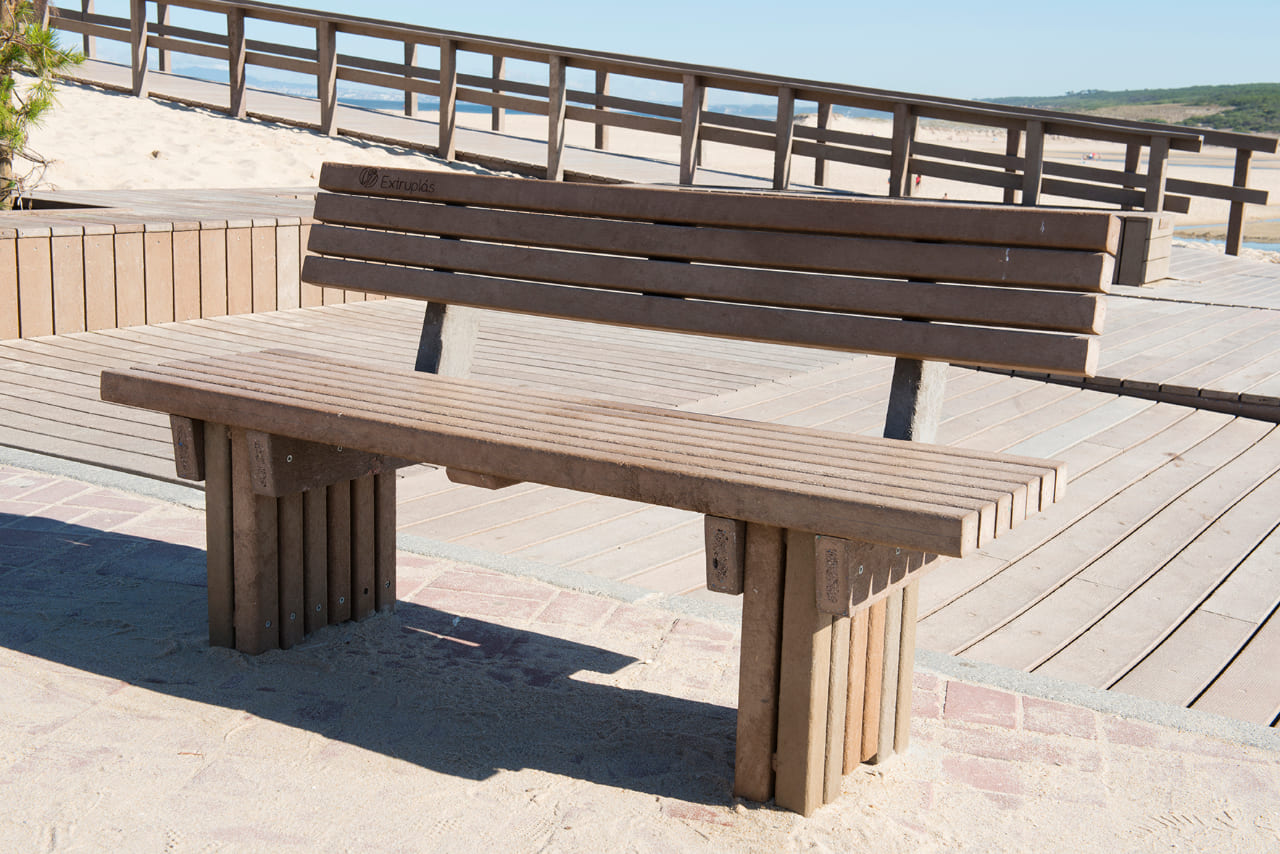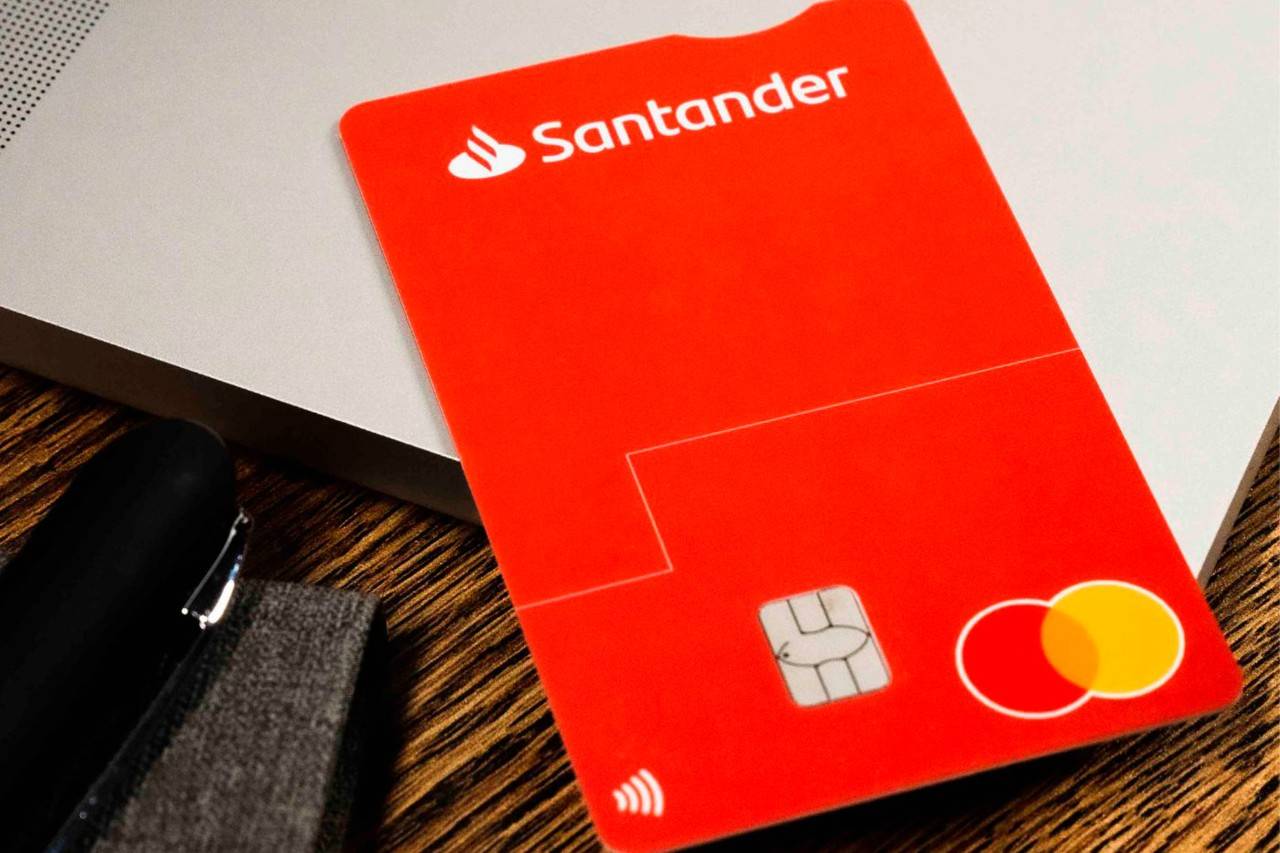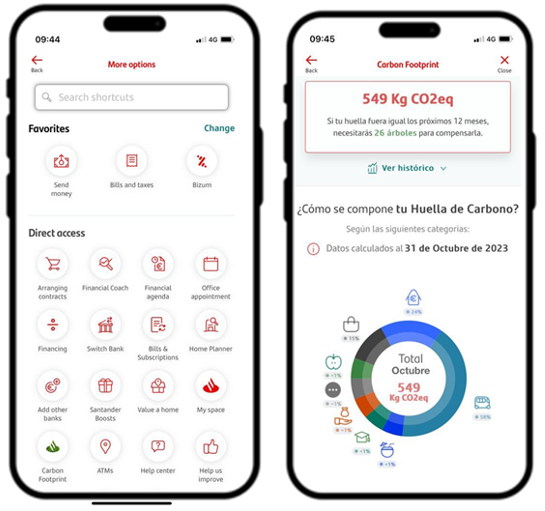How Santander is recycling expired bank cards


Last update: 03/10/2024
As part of our commitment to the circular economy, we’re running initiatives with help from our customers to give damaged or expired cards a second chance.
Plastic is one of the environment’s worst nemeses. According to the United Nations Environment Programme, “approximately 7,000 million of the estimated 9,200 million tons of cumulative plastic production between 1950 and 2017 became [dumped or discarded] plastic waste”.

Under our objective to reduce the environmental impact of our operations, Santander is running initiatives to make and recycle credit and debit cards and cut plastic pollution.
Thanks to our initiatives, we’ve recycled almost a million expired or damaged cards to date. In 2023, the 4.5 million-plus sustainable cards we issued helped Santander eliminate 22 tonnes of single-use plastic and 360 tonnes of CO2 equivalent.
Across our footprint, Cards — our cards platform and units in our markets and part of the global Payments business — issued over 37 million cards in 2023 (72% of the total for the year) made from sustainable material, namely polylactic acid (PLA, a sustainable plastic substitute polymer made from renewable resources of biological origin) or recycled PVC from the packaging and printing industry, which helps reduce the use of non-recycled plastic.
With sights set on the circular economy, Santander is looking for ways to give expired or damaged cards a new life. A few years ago, we launched an initiative in Portugal to recycle credit and debit cards into materials to make benches, waste bins, flower pots and other street furniture.
And our Cards division has helped us launch this initiative in Spain. The benches made from our recycled cards can be found in Valencia, Malaga, Santander and Seville. We also have five at our headquarters, the Santander Group City.

Cards and sustainability
On top of card recycling, we’re aiming for every Santander bank card to be made of sustainable material (like recycled PVC and corn extract) by 2025 in all our markets. We’re increasingly looking to recycle at all product life stages. Cards is running these initiatives:
- Cards made of sustainable materials: We offer cards made of sustainable materials (recycled PVC or PLA) in all our markets. For example, in our Eco cards in Chile, SX and Elite cards in Brazil, or in Spain. Santander México will replace all debit cards and LikeU credit cards with sustainable ones, specially designed for customers with visual impairment.



- Carbon footprint calculator: An online banking service that estimates the carbon footprint of credit and debit card payments made by customers in Europe (Portugal, Spain and the UK) and Chile. In Spain, Portugal and Chile, customers can purchase carbon credits associated with certified initiatives to offset their carbon footprint.

Tool for customers to measure their carbon footprint on Santander España’s digital banking app.
- Digital First: In some countries we offer our customers the possibility of contracting or renewing cards only virtually, so we do not generate the plastic.







